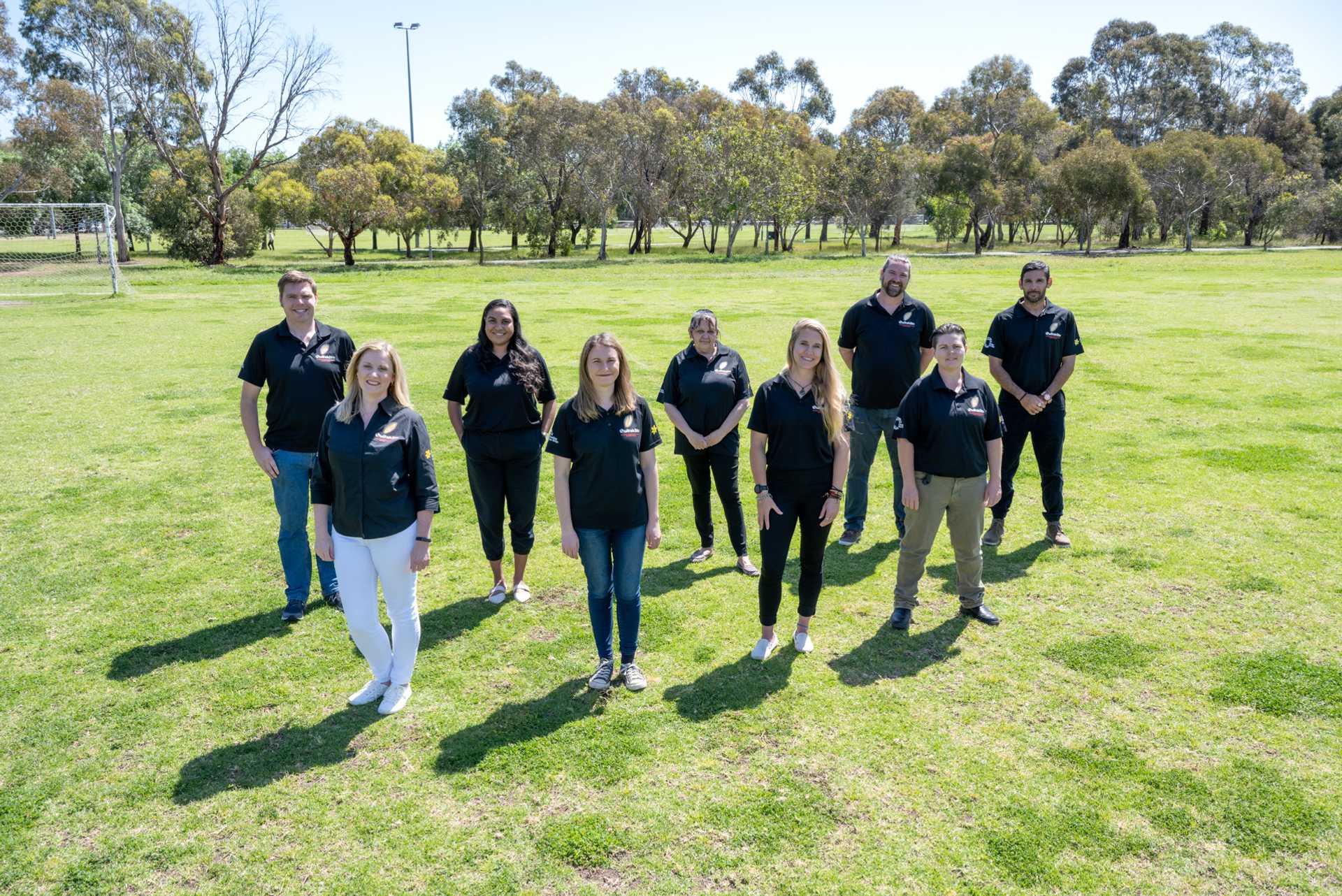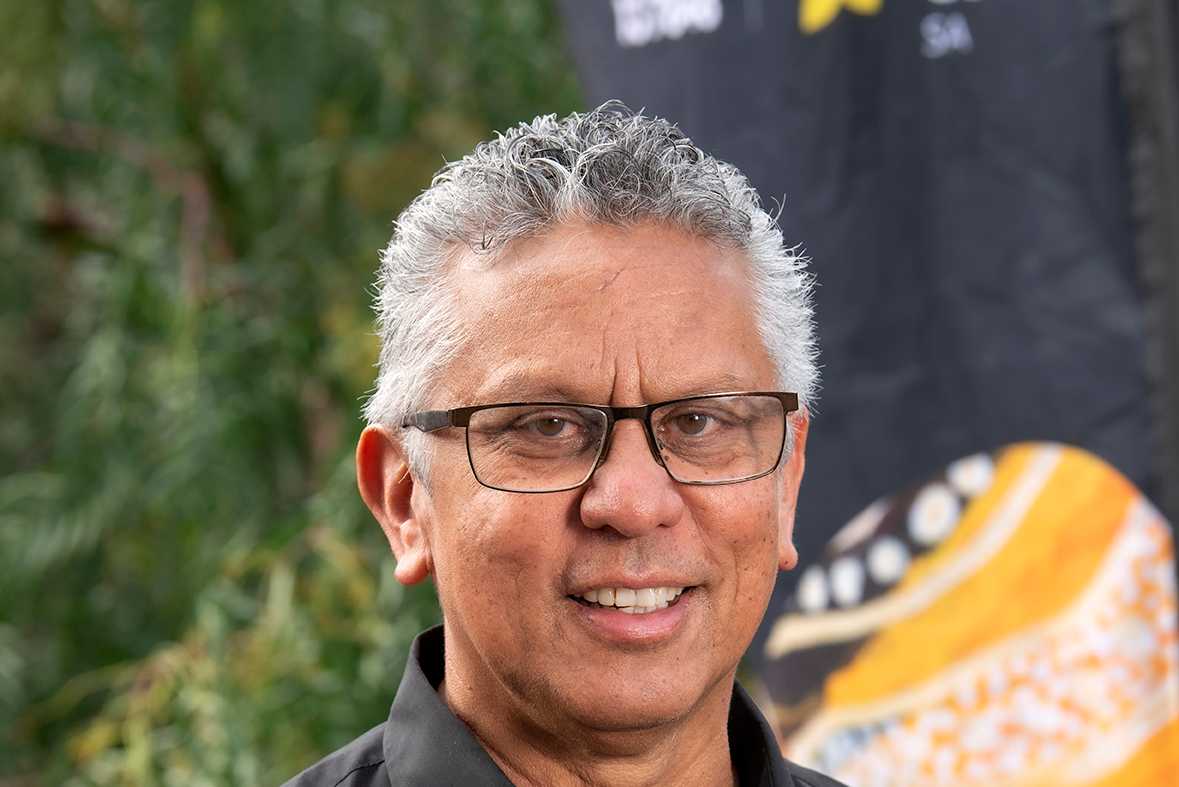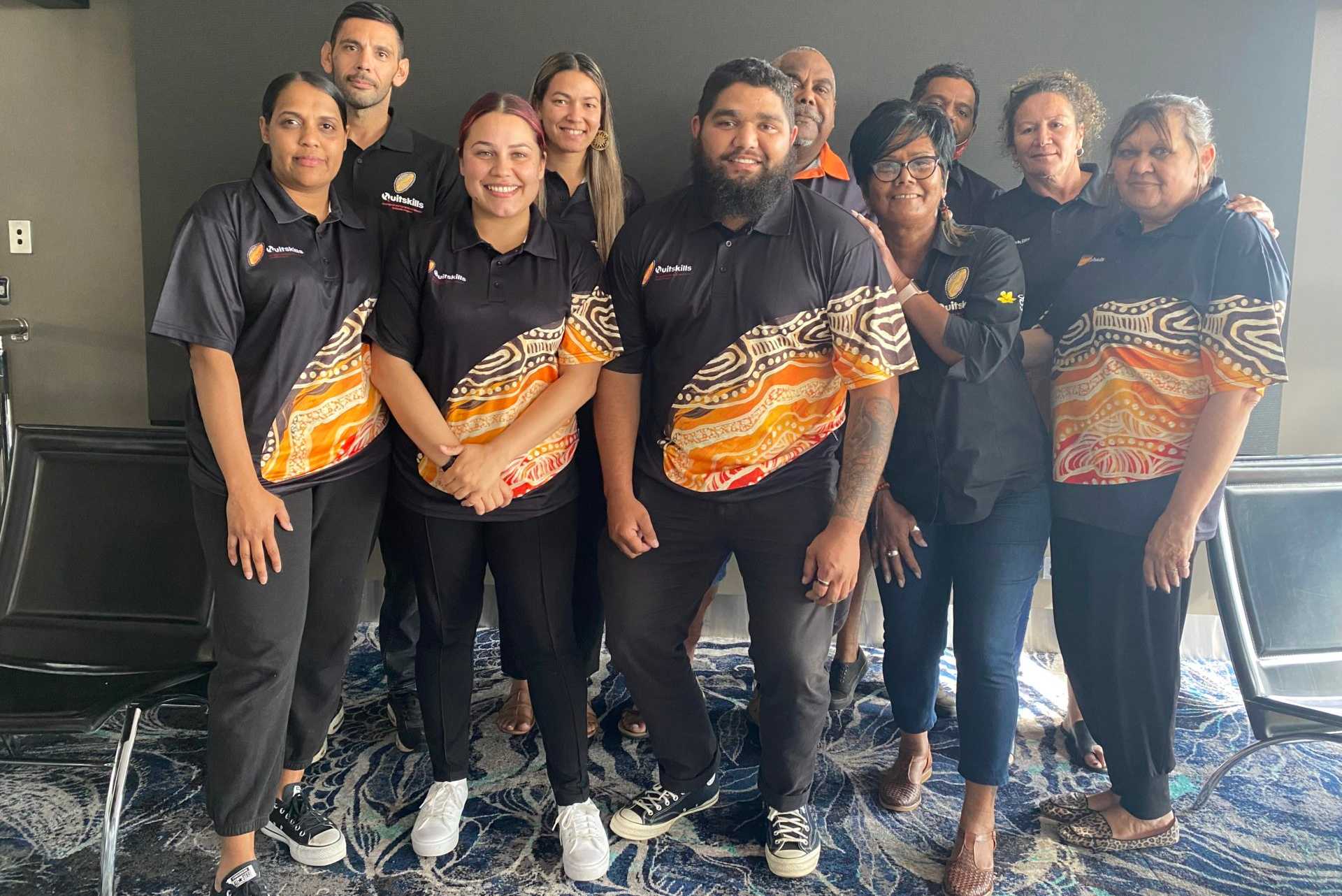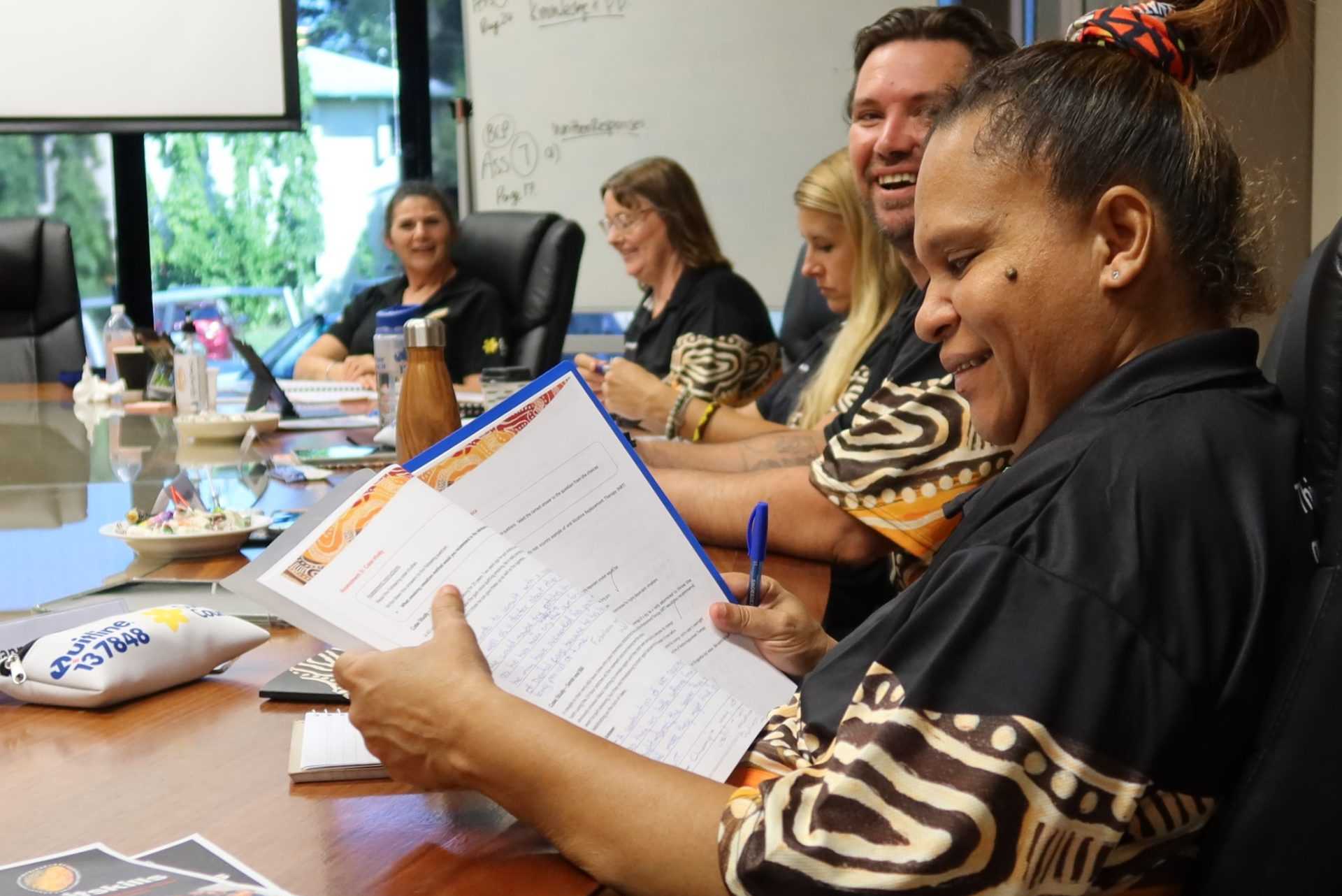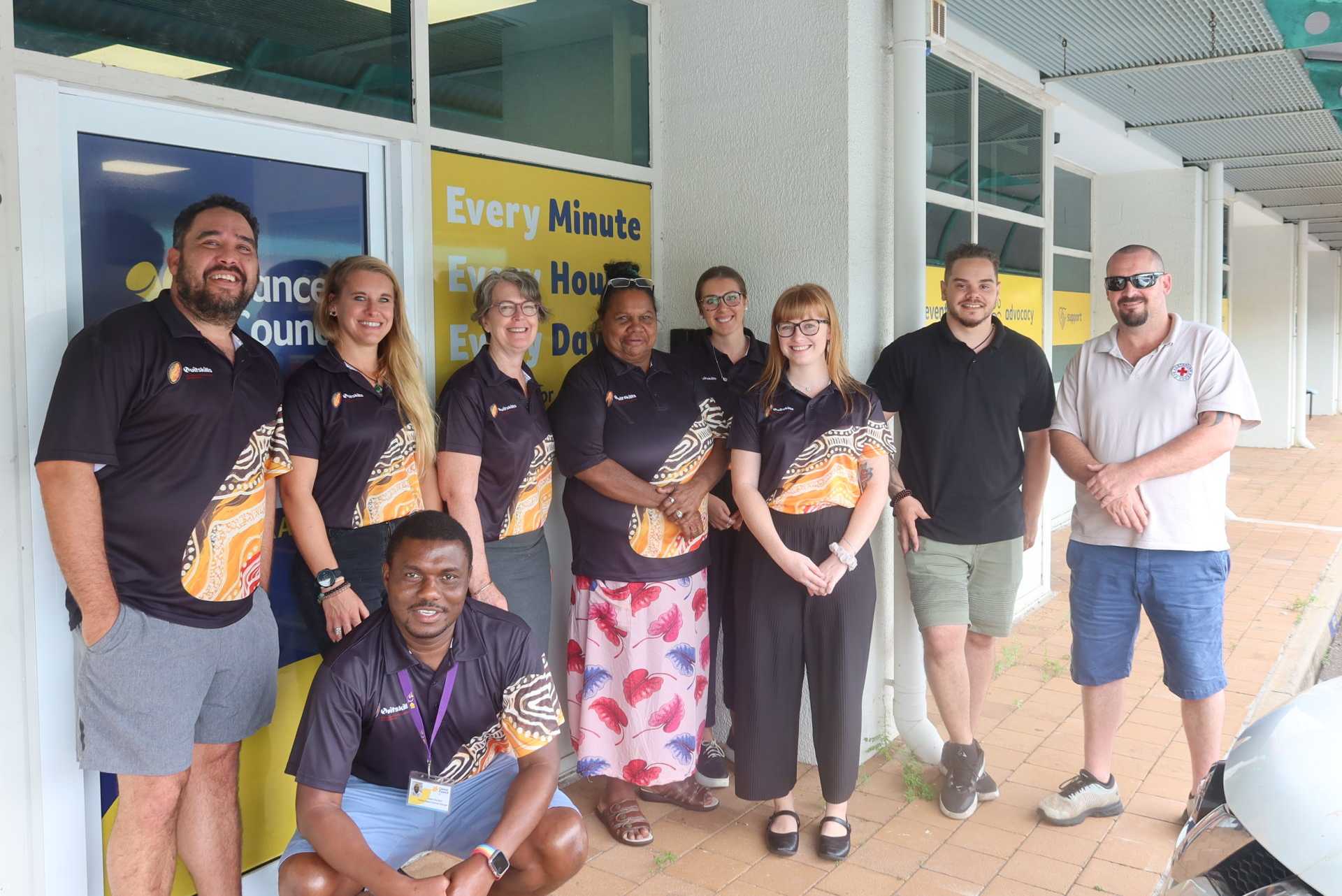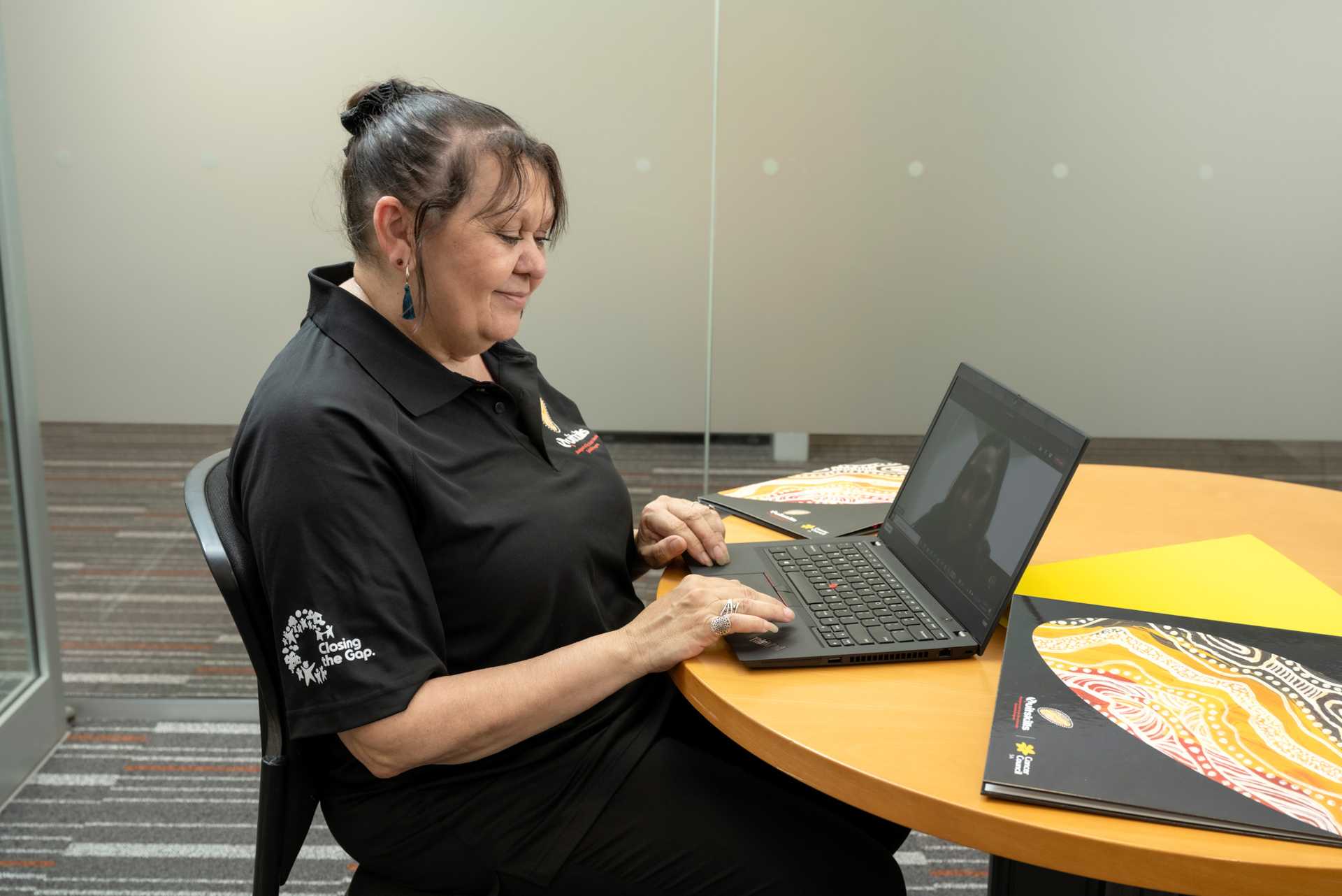We regret to inform you that the Quitskills Program funding will cease from 1 July 2022. We are no longer accepting new expressions of interest for training.
For queries related to training that has already been delivered, please email quitskills@cancersa.org.au.
Thank you
We would like to take this opportunity to acknowledge the Australian Government’s funding of the national Quitskills Program from 2012-2022.
Thank you to stakeholders across the country who have supported the Quitskills Program over the last 10 years. It has been a privilege for Cancer Council SA to experience the hospitality and generosity of the many Aboriginal and Torres Strait Island communities we have visited, often on several occasions.
To all those working hard in communities to reduce smoking rates and make a positive impact on the health outcomes of Aboriginal and Torres Strait Islander people, thank you for your passion and commitment. We hope to work with you again in the future on programs and initiatives that support our collective vision of a future free from tobacco.
To all the staff who worked tirelessly to roll out this program over the past 10 years, congratulations on the role you have played in making a real difference in reducing the smoking rates in Aboriginal and Torres Strait Islander communities.
Kerry Rowlands
Chief Executive, Cancer Council SA
Frequently Asked Questions:
What was the Quitskills program?
The Quitskills Program was a nationally recognised training program on smoking cessation. The training provided participants with the confidence to support Aboriginal and Torres Strait Islander people to think about their smoking and support them with any changes they wish to make. The program was delivered by Cancer Council SA nationally from 2012-2022.
Why has the funding for Quitskills ceased?
The Quitskills Program was funded from 2012-2022, as part of the Tackling Indigenous Smoking Closing the Gap Federal Government initiative. Despite evaluation of the Program supporting it as a culturally appropriate course that increased skills and confidence among health professionals working with Aboriginal and Torres Strait Islander people who smoke1, a decision was made to redirect funding into other areas of the Tackling Indigenous Smoking initiative.
Is smoking cessation in Aboriginal community still a priority for Cancer Council SA?
Tobacco use is responsible for 12 per cent of the total burden of disease for Indigenous Australians and is the risk factor contributing to the highest disease burden. Additionally, its use accounts for 20 per cent of the health gap between Indigenous and non-Indigenous Australians.2
Cancer Council SA is committed to tobacco control in Aboriginal and Torres Strait Islander communities. To subscribe to updates on future initiatives please email AboriginalPrograms@cancersa.org.au
Where can I access information and support resources?
For more information and support resources visit:
Quitting smoking information: https://www.cancersa.org.au/prevention/smoking
E-cigarettes and vaping information: https://www.cancersa.org.au/prevention/smoking/electronic-cigarettes-and-vaping/
Cancer prevention resources for health professionals: https://www.cancersa.org.au/health-professionals/resources/
Quitline information: www.quit.org.au
Quitline resources – order form: https://www.quit.org.au/resource-order-form/
Tackling Indigenous Smoking resources: https://tacklingsmoking.org.au/resources/resources-to-support-activities-that-work/
Don’t Make Smokes Your Story – campaign: https://campaigns.health.gov.au/smokes
References:
1. Martin et al. (2019) Evaluation of an intervention to train health professionals working with Aboriginal and Torres Strait Islander people to provide smoking cessation advice. Australian and New Zealand Journal of Public Health, 43(2), 156-162.
2. Australian Institute of Health and Welfare (2022) Alcohol, tobacco & other drugs in Australia, AIHW, Australian Government, accessed 22 April 2022
